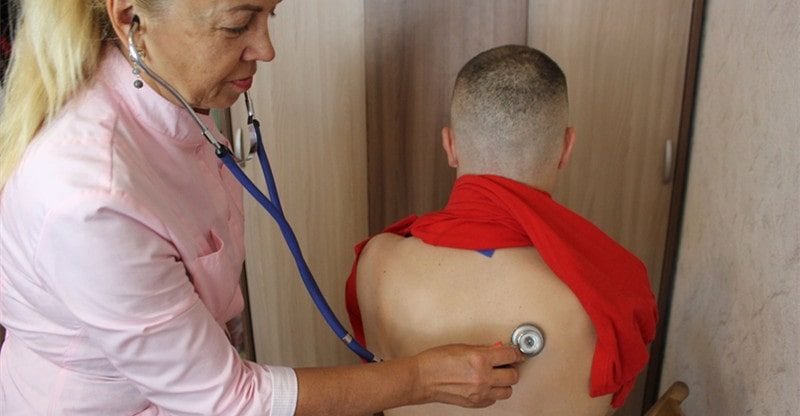How To Advocate For Yourself With Healthcare Professionals
Outside of relationships with your family and closest friends, your relationship with your healthcare team is undoubtedly one of the most important connections in your life. After all, the bonds you forge with your caregiver have a direct relationship with the quality of your life and health. They may even save your life.
Unfortunately, though, the provider/patient relationship isn’t always all it should be. In the face of sickness or injury, you may end up being the only one with your best interests in mind. You might even find yourself fighting to be heard, and fighting for your rights as a patient. After all, as a human being, you deserve your doctor’s recognition, understanding, and care.
This is by no means easy, especially when you are facing the fear, uncertainty, and anxiety that comes with illness. But know that you’re not alone. Studies show that even cancer patients will forgo educating themself about self-advocacy due to fear. However, there are few responsibilities more important than being your own health advocate; not only for yourself but also for the people who love you.
Claim the Right to Fight
Becoming your own health advocate doesn’t mean you have to become “that” patient — the one who terrorizes the healthcare team and transforms every encounter into a confrontation. You don’t have to compromise the harmony of your relationships with your care-providers at all.
But that’s not what matters. What matters above all is that you receive the attention and the care you deserve. This means ensuring that you and your healthcare team keep your priorities straight: your health first and the quality of your relationship second.
Bear in mind that you and your team are, or should be, working toward the same ultimate goal — to ensure that you enjoy the healthiest, happiest, and longest life possible. To that end, you have to put aside the fear that you will “bother” your physician by asking too many questions or asking the “wrong” one. Instead, you should feel empowered to advocate for yourself.
When it comes to your health, there is simply no such thing as a trivial matter. There are no unnecessary or unimportant questions.
Do Your Homework
To gain a sense of what questions you should be asking comes simply through education. No, you don’t need to graduate with an MD from Google University. Too much time spent Googling your symptoms will often misinform you and convince you within minutes that you’re dying of some dreaded disease.
To keep from falling down this medical research rabbit hole, make sure you’re focusing on reputable medical sources, such as information provided from prestigious medical institutions like Johns Hopkins or the Mayo Clinic.
At the same time, informing yourself about your condition, your treatment, your symptoms, and your medication can help you feel more empowered to ask the right questions. Above all, this can help you understand what to expect from your care provider, and help you recognize when you’re not receiving the care you deserve.
For example, if you experience vascular pain, and educate yourself on the vascular diagnostic process, you can request a Doppler ultrasound so your team can follow evidence-based best practices. In essence, you’re not simply giving your health, or your healthcare, over to the professionals. It means that you have gathered enough information to trust, but verify your healthcare team and their processes.
Know the Consequences
Self-advocacy, however, is more than just acknowledgment from your healthcare team. It involves ensuring that your team has full knowledge of your concerns, questions, and experiences. This way they can take your experiences into account when formulating your care plan.
Such an understanding isn’t a luxury. It’s a necessity if you are to receive the quality of care you deserve. When your healthcare team has incomplete information, or if they fail to consider your voice, you can risk being on the receiving end of medical malpractice. This can range from a misdiagnosis, a delayed diagnosis, or even inappropriate and potentially dangerous treatment.
If you find that your healthcare provider simply isn’t willing to listen to your concerns or thoughtfully address your questions, then it’s time to reach out for a second opinion. A second opinion can help you identify when a misdiagnosis is occurring and can help you become a better advocate for yourself.
If your doctor’s unwillingness to recognize or address the issues you raise has resulted in an improper diagnosis or treatment strategy, then it may also be time to consult a medical malpractice attorney. A malpractice complaint can help protect your legal rights, now and in the future, particularly if your physician’s negligence has contributed to the worsening of your condition.
The Takeaway
Health is one of the most valuable resources we have, and that means that the relationship between the patient and the healthcare team must be built on a profound level of trust and respect. However, ensuring you receive the quality of care you deserve often means learning to be your own advocate with your healthcare team.
In the end, though, self-advocacy means improving your quality of care, and the quality of your relationships with your healthcare providers. Ultimately, this can be a powerful recipe for a long and healthy life!



